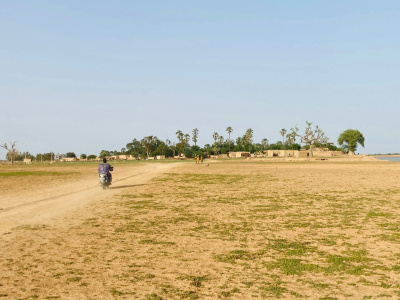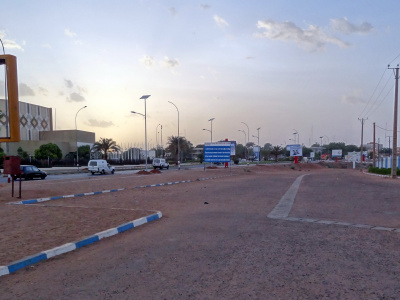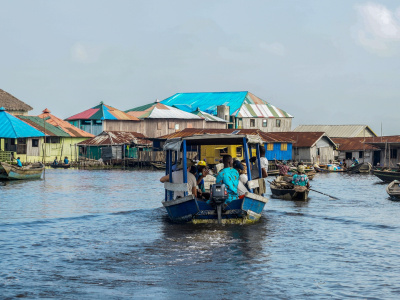
ECOWAS evolutions: Who gains?
Authors
Even if regional cooperation is generally presented as economic and political, it is undeniably also ideological. On 29 January 2025, Burkina Faso, Mali and Niger officially left the Economic Community of West African States (ECOWAS), a year after announcing their departure from the fifteen-member West African bloc.
In establishing their own Alliance of Sahel States (AES), their ‘Joint Communiqué No.001’ cited the following key reasons for their ECOWAS exit in January 2024: “a departure from the ideals of the founding fathers and of pan-Africanism", influence from "powerful foreign forces", and a lack of support when they took things into their own hands to fight against terrorism and insecurity. This was in line with a broader sense that ECOWAS has been ceding its responsibilities to external actors.
Nonetheless, there are various paradoxes, beyond the fact that 2025 was meant to be a celebration of the bloc's 50th anniversary.
Keeping it together
Key among these paradoxes is the origin of ECOWAS. Founded in 1975, the bloc embodied the ambition among member states to “combine developmentalist agendas” with a “dilution of the colonial francophone/anglophone/lusophone divide”. In particular, Nigeria’s president Yakubu Gowon and Togo’s president Gnassingbé Eyadéma sought to offset the influence of the French in West Africa through the (still functioning) francophone group of eight states part of the West African Economic and Monetary Union (UEMOA). This vision, part of a wider pan-African, post-colonialist movement against arbitrary borders, was laid out by Gowon in his PhD thesis from 1984.
Since then, the original treaty was updated in 1993 to pass more power to the regional level. The 2010 ECOWAS Vision 2020 then sought to create an ‘ECOWAS of the people’, responding to a sense that it was too distant from its citizens. The issues raised by the departing countries have therefore already shaped the ECOWAS agenda.
Beyond ideology, all three AES countries are landlocked and economically dependent on imports (and some exports) that primarily pass through the ports of ECOWAS members Côte d’Ivoire, Ghana,Togo, Senegal and Benin. While much less is being said about UEMOA membership – where one might have expected anti-French sentiment to focus, given the CFA Franc link to France's central bank – continued membership may in fact reduce the pain of exiting ECOWAS.
The incomplete alignment of regional trade rules still allows some flexibility for countries and businesses to choose between different regulatory systems. Certificates of origin from UEMOA are sometimes preferred for trade within its member states, even though these countries are all part of ECOWAS. This means that, at least in theory, the movement of people and certain goods can still follow UEMOA regulations.
In fact, on the political front, an ECOWAS statement from 29 January 2025 essentially recommended neighbouring countries to continue to apply ECOWAS rules as though they were still members while a post-ECOWAS arrangement is agreed. That is, it requested states to recognise passports and visa-free travel for people, and apply the ECOWAS Trade Liberalisation Scheme rules for goods. Importantly, even with the exit process, state-to-state relations remain strong, with Burkina Faso’s military leader, Ibrahim Traoré, attending the inauguration of Ghana’s president John Mahama in January 2025.
At the same time, the newly formed AES was already set up in September 2023 following Burkina Faso, Mali and Niger’s suspension from ECOWAS. The alliance started with a defence pact in reaction to ECOWAS’s threats to militarily restore civilian rule after the coup in Niger on 26 July 2023 and to address common security challenges. Implicitly acknowledging future challenges to a ‘hard exit’, in December 2024, the AES announced that ECOWAS nationals would be permitted to enter, move, reside, establish and exit AES territories, in accordance with existing national regulations. In some sense, the mirrored acceptance of each other’s rules will also lower the potential pain of an exit.
Indeed, in a new twist, some speculate that the AES will grow in strength as Côte d’Ivoire, Chad, Ghana and Senegal have “shown signs of unswerving support for the newly-created security organisation in the region”. While that remains to be seen, the examples of UEMOA and ECOWAS show that overlapping regional memberships have not blocked the creation and growth of regional organisations in the past.
The examples of UEMOA and ECOWAS show that overlapping regional memberships have not blocked the creation and growth of regional organisations in the past.
An ECOWAS of interests and incentives
Regional integration in Africa has sometimes been criticised not only for being inter-state rather than supranational, but also for relying on informal relations among heads of state. One might criticise this form of regionalism, where heads of state seek internal and external legitimacy through ‘summitry’ and rent-seeking, leading to so-called ‘shadow regionalism’. But it is not unique to Africa and, within bounds, may even provide an alternative basis for regional cooperation.
In our own work on the political economy of regional integration, it consistently emerges that cooperation takes place when elite incentives align both within and between concerned states. This general observation is as much the case for transport corridors linking the coast to the hinterland as it is for attempts to improve regional rice and livestock markets, or cooperation around rivers. The question here is therefore the degree to which heads of state and their people share common interests, and the extent to which they believe these interests are being met through the AES, UEMOA or ECOWAS.
All of this presents a conundrum for international partners operating in West Africa, including the EU. Beyond concerns about security – where the EU is criticised for focusing on coastal countries rather than the Sahel – the EU’s Global Gateway strategy seeks to focus attention on trade and investment through flagship projects, including along specific corridors.
In West Africa, proposed Global Gateway investments would focus not just on the coastal Abidjan-Lagos corridor, but also the Cotonou-Niamey and Abidjan-Ouagadougou corridors, connecting Benin and Côte d’Ivoire with two of the three breakaway countries – Niger and Burkina Faso. Given the EU’s own origins, European officials frequently cite how economic ties helped overcome conflicts. Therefore, they arguably should continue to support these economic integration initiatives while the wider policy environment is clarified.
The underlying fact is that people do and will move and trade across borders – with or without ECOWAS, or the AES.
‘ECOWAS of the people’
The underlying fact is that people do and will move and trade across borders – with or without ECOWAS, or the AES. Often, formal regional processes aim to catch up with or formalise existing trade and movement of people patterns. While the newly exited Sahel states might argue that they are responding to demands from their people – claiming that an ‘ECOWAS of the people’ has failed – the more likely reason, as The Economist put it, is “their desire to escape pressure to hand back power to civilian governments”. That, then, is arguably more about survival than ideology or economics.
The views are those of the author and not necessarily those of ECDPM.




